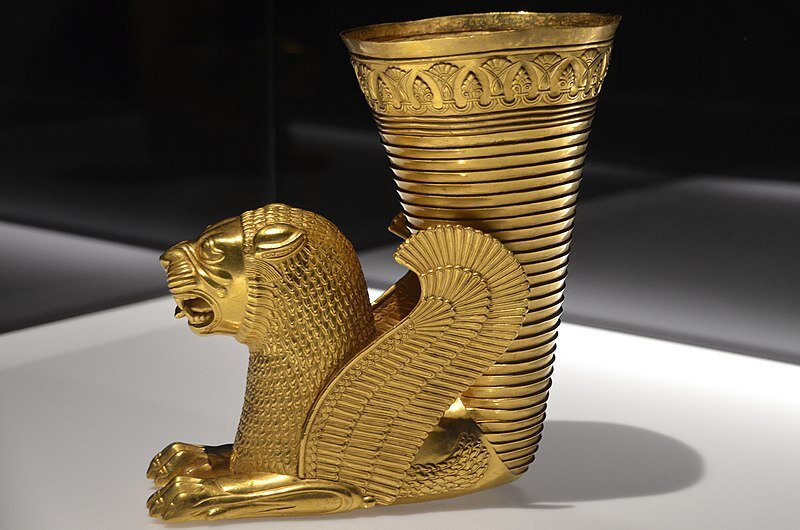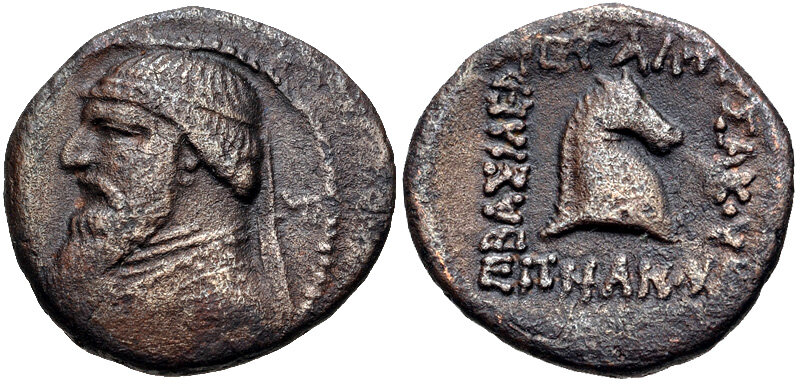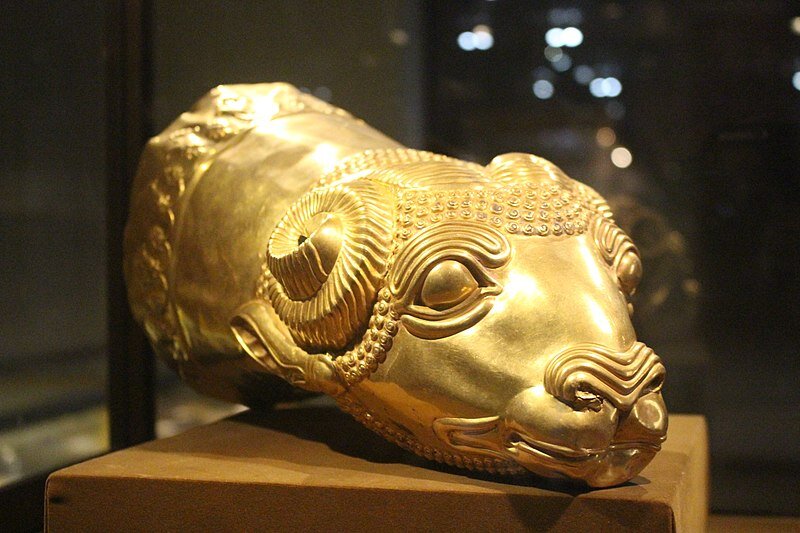Iran's Ecbatana added to UNESCO World Heritage list

TEHRAN – Ecbatana, a treasured ancient city of Iran known for its profound historical and cultural significance, has been officially inscribed on the World Heritage List by the United Nations Educational, Scientific and Cultural Organization (UNESCO).
This prestigious recognition marks Ecbatana, better known as Hegmataneh in Iran, as the country's 28th UNESCO World Heritage label, underscoring the country's rich heritage and cultural legacy.
The decision was made today during the 46th session of the UNESCO World Heritage Committee held in New Delhi, India, where delegates from around the globe convened to review nominations from various countries. The inclusion of Hegmataneh highlights its extraordinary contribution to human civilization and its role in shaping the cultural landscape of the region.

Achaemenid golden rhyton in the shape of a lion, from Ecbatana, kept at the National Museum of Iran.
Hegmataneh is universally celebrated as the site where the Median Dynasty was first established. Serving as the capital of the powerful Median Empire, Hegmataneh later became a significant center for the Achaemenid Empire, one of the most influential empires in history. The city's historical significance is further enriched by its role during subsequent periods, including the Seleucid, Parthian, Sassanid, and Islamic eras. Each era left its indelible mark on Hegmataneh, shaping it into a vibrant tapestry of cultural evolution.
Located in the suburban area of modern Hamadan, Hegmataneh spans approximately 50 acres, with its rich archaeological deposits offering a glimpse into millennia of human civilization. Despite its vast historical significance, large portions of the site remain unexplored, promising future discoveries that could further illuminate our understanding of ancient Iran.

Coin of Mithridates II with a horse depicted on reverse, minted and discovered in Ecbatana.
In addition, Ecbatana is a treasure trove for archaeologists and historians alike. The site houses an impressive array of remains from various dynasties, including the Medes, Achaemenid, Parthian, Sassanid, and Islamic periods, particularly the Buyid dynasty. While the majority of the remains belong to the Parthian era, the site also features urban architectural systems that are considered masterpieces of their time.

Golden rhyton of ram's head, discovered in Ecbatana, kept at the Reza Abbasi Museum.
The Parthian urban architecture of Hegmataneh is characterized by sophisticated designs and constructions that reflect the exceptional skill and ingenuity of their creators. The site includes remnants of royal buildings, ancient fortifications, and an advanced water management system, showcasing the engineering prowess and architectural sophistication that flourished in ancient Persia.
Experts say the designation not only acknowledges the historical and cultural value of Ecbatana but also emphasizes the need for its preservation and protection for future generations.
AM
Leave a Comment